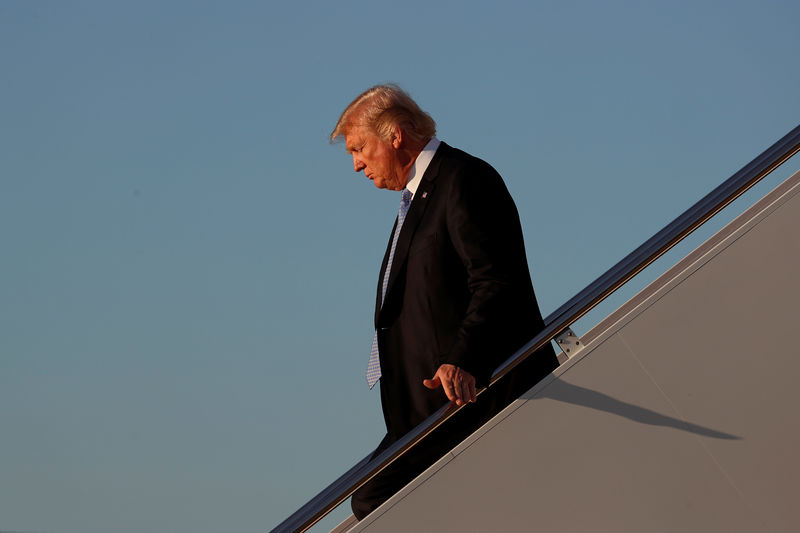By Amanda Becker
WASHINGTON (Reuters) - High-income Wall Street financiers could be unintended winners from a section of U.S. President Donald Trump's tax-cut plan that is meant to help mostly small, "mom-and-pop" businesses.
Trump called on Wednesday for a new "pass-through" tax rate of 25 percent that could mean big savings for owners of sole proprietorships and partnerships who now pay 39.6 percent.
But it could also mean a windfall for partners in private-equity, venture-capital and hedge funds, unless Congress can figure out a way to block them from taking advantage of the new rate.
Ron Wyden, top Democrat on the tax-writing Senate Finance Committee, said Democrats supported a pass-through rate for small businesses, such as "a cleaner, a garage, a restaurant."
He said Trump's plan, however, would create "a whole new set of wealthy individuals being able to dodge their taxes through this new provision."
At issue is the taxation of the roughly 95 percent of American businesses that are not public corporations.
Non-public pass-through businesses, such as sole proprietorships, limited liability companies and partnerships, pay no income tax themselves. Instead their profits "pass through" directly to their owners, who pay tax on them at the individual tax rates.
A small fraction of those business owners pay the top individual tax rate of 39.6 percent, higher than the current top corporate income tax rate of 35 percent.
Those business owners have long complained that the disparity is unfair, especially in view of the fact that many multinationals pay much less than the 35 percent statutory corporate tax rate by exploiting abundant loopholes and tax breaks available to large, global corporations.
Republicans have been eager to address the issue. Trump's plan proposes a new tax rate of 25 percent for the pass-through income of "small and family-owned businesses."
The problem, according to the plan's critics, is that financial entities such as private-equity, venture-capital and hedge funds are all partnerships whose wealthy partners would see substantial tax savings on large portions of their income unless congressional tax writers find a way to exclude them.
'GOOD' VERSUS 'BAD' PASS-THROUGH INCOME
The White House document that spelled out Trump's plan signaled that the administration was aware of the potential problem but would leave addressing it up to Congress.
The document said: "The framework contemplates that the (congressional tax) committees will adopt measures to prevent the recharacterization of personal income into business income to prevent wealthy individuals from avoiding the top personal tax rate."
Trump's plan also proposes cutting the top corporate tax rate to 20 percent from 35 percent and cutting the top individual tax rate to 35 percent from 39.6 percent.
Treasury Secretary Steven Mnuchin said two weeks ago that the administration would ensure partners at services firms such as accounting, law and financial firms would not benefit from a new, lower pass-through rate.
A Treasury Department spokesman did not respond to a request for comment on the pass-through rate or plans to exempt certain categories of firms.
Frank Clemente, executive director of Americans for Tax Fairness, a liberal advocacy group, said the idea that a new pass-through rate would help small business was "simply a hoax."
Tax experts said it would be difficult for congressional tax writers to exempt partners at services firms from using the new pass-through rate.
"There has always been talk of how to carve out 'good' pass-through income from 'bad' pass-through income. The problem is it's exceedingly hard to do and there is no way to draw clear lines that won't be manipulated," said Seth Hanlon with the Center for American Progress, a liberal group.
Victor Fleischer, a law professor at the University of San Diego, agreed it would be "challenging."

"Still, I think it can probably be done," Fleischer said.